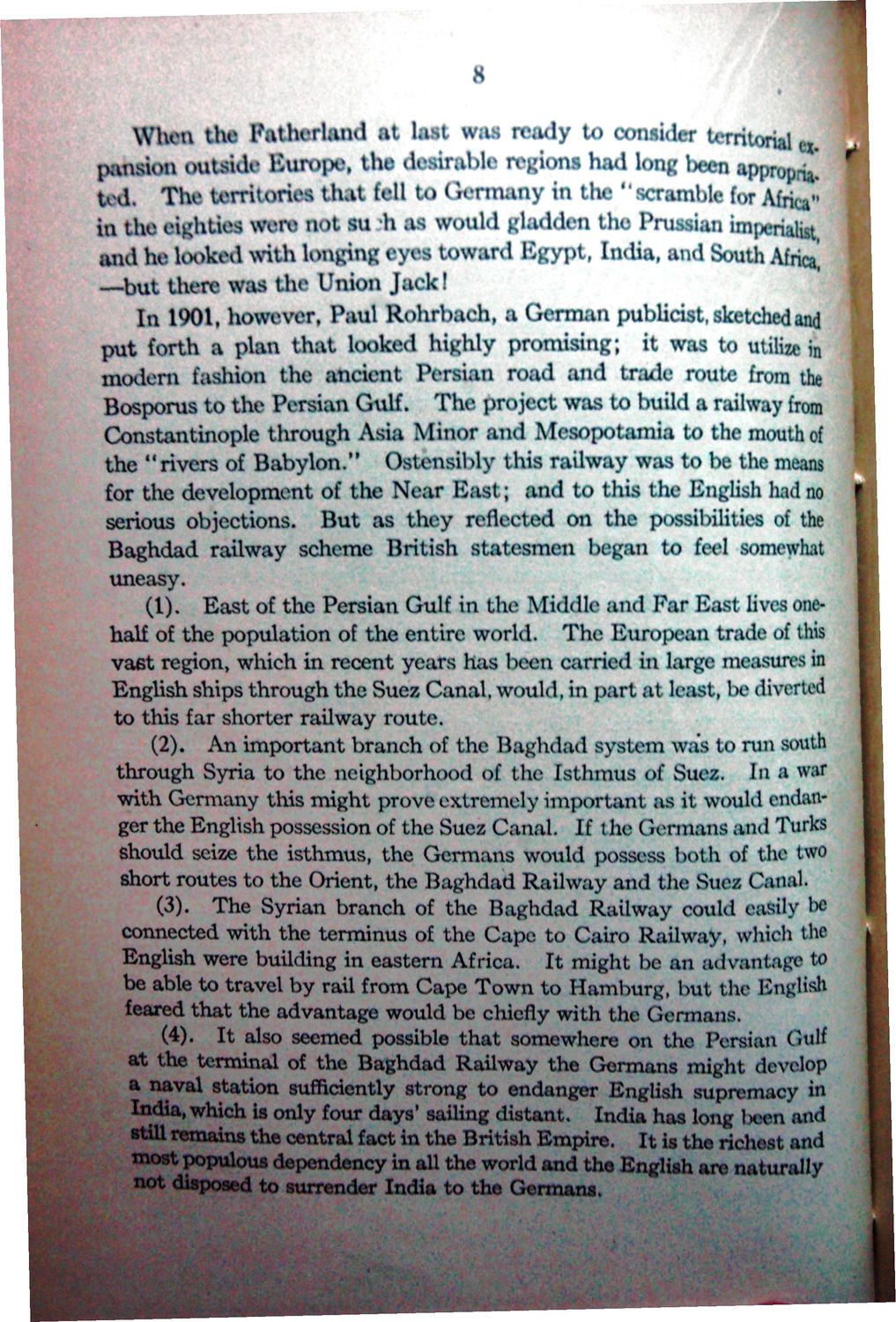| |
| |
Caption: War Publications - WWI Compilation 1923 - Article 15
This is a reduced-resolution page image for fast online browsing.

EXTRACTED TEXT FROM PAGE:
8 When the 1 itherland at la i w.u ready to consider territorial <*. pansion outside Europe, the detirablc regions had long been approp.^* tod. Tito torrit oriel that fell to Germany in the "scramble for Africa" in the eighties wore not M It as would gladden the Prussian imperialist, es toward Egypt, India, and South Africa! J In 1901, however. Paul Rohrbach, a German publicist, sketched and put forth a plan that looked highly promising; it was to utilize in modern fashion the ancient Persian road and trade route from the Bosporus to the Persian Gulf. The project was to build a railway from Constantinople through Asia Minor and Mesopotamia to the mouth of the "rivers of Babylon." Ostensibly this railway was to be the means development )ast; and to this the ICnglis serious reflected on the possibiliti railway scheme British statesmen began to feel somej uneasy (1). East of the Persian Gulf in the Middle and Far East lives ropean half of the population of the entire world, vast region, which in recent years has been English ships through the Suez Canal, would to this far shorter railwav route. (2). An important branch of the Baghdad system was to run south through Syria to the neighborhood of the Isthmus of Suez. In a war with Germany this might prove extremely important as it would endanger the English possession of the Suez Canal. If the Germans and Turks should seize the isthmus, the Germans would possess both of the two short routes to the Orient, the Baehdad Railwav and the Suez Canal. (3). COUld connected with the terminus of the Cape to Cairo Railway, which the English were building in eastern Africa. It might be an advantage to be able to travel by rail from Cape Town to Hamburg, but the English feared that the advantage would be chiefly with the Germans. (4). It also seemed possible that somewhere on tho Persian Gulf at the terminal of the Baghdad Railway the Germans might develop a naval station sufficiently strong to endanger English supremacy in India, which is only four days' sailing distant. India has long been and still remains the central fact in the British Empire. It is the richest and most populous dependency in all the world and the English are naturally not disposed to surrender India to the Germans.
| |